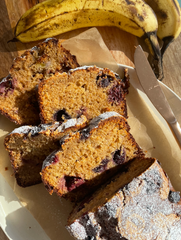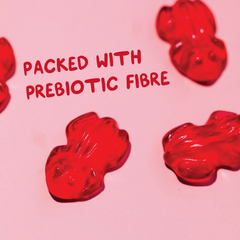Thinking about going vegan, vegetarian or flexitarian and want to know what's what? Then keep on reading!
There is no denying we are seeing a shift towards more plant-based eating. You just have to take one look at the long-life milk section, and the meat alternatives section in the supermarket to notice the never-ending abundance of plant-based products. With all the terminology out there it can get confusing - it is hard to know what the difference is between being a Vegan / Vegetarian / Pescitarian/ Flexitarian. We are going to unpack the differences here - see if you can pick up a common theme.
In their simplest form, both Vegan and Vegetarian diets place an emphasis on eating predominantly plant-based food and drinks. Vegan diets completely omit all meat and animal products (inclusive of seafood, dairy, eggs, gelatine and honey), this is the most ‘strict’ type of plant-based eating. There are many variations of Vegetarianism - for example Pescetarianism which includes the consumption of seafood, dairy foods and eggs but not inclusive of meat.
A good way to think about why Vegan and Vegetarian diets are becoming increasingly more topical is to think about why a focus on plant-based eating is beneficial. Eating more plants has incredible benefits - not only for our long term health, but for the environment, for our gut microbiome, for our bank balance and for our risk of developing chronic diseases. If the benefits of plant-based eating have already got you thinking - you may wish to dabble in more Flexitarian style eating. Flexitarian style eating promotes the emphasis of eating more plant-based food but with less strict rules than following a Vegan/Vegetarian diet. This is where the ‘Flexi’ element of the dietary pattern becomes the point of difference, the focus of this style of eating is not what you are leaving out of your diet but what you are adding in.
Pretty much everyone could benefit from the addition of more plants in their diet - this includes wholegrains, legumes, fruits, vegetables, nuts and seeds. However, it is not necessarily a requirement of the Flexitarian Diet to omit meat, dairy and eggs altogether - but merely to put more focus into including more plants into one’s usual repertoire. Being a ‘Flexible’ Vegetarian means the emphasis of our diet is on eating more plants but having the option to choose meat and animal products wherever you see fit, in moderation.
Whilst the rise in Vegan/Vegetarian and Flexitarian style diets are worth championing - there are some considerations that one should keep in mind before making a change from their normal dietary pattern. People who consume strictly Vegan diets need to be mindful of making sure they are proactive about obtaining particular micronutrients that are largely present in animal based products - namely Vitamin B12, Vitamin D, Calcium, Iron, Zinc and Omega 3 fatty acids. It is absolutely possible to follow a Vegan/Vegetarian diet without risk of Nutrient Deficiencies, but it is worthwhile speaking with your GP or Dietitian before commencing a Vegan/Vegetarian diet. Whether you identify as Vegan/Vegetarian or Pescatarian one of the best things you can do for your health is to eat more veg!
Whether you're thinking vegan, vegetarian or flexitarian you can always count on FUNDAY to bring the goods. We cater to all of your lolly loving needs!
Written by our FUNDAY resident Dietitian Daena Ryan.




